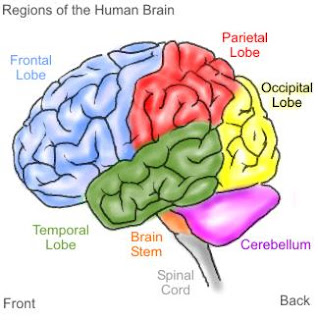
Fear and anxiety are emotions that can distort our view and experience of the world. Too much anxiety distorts the actual threat standing in front of us. The stress response is a good thing if you are facing a pit bull that is ready to turn you into a Big Mac. The adrenalin surge that appears during an argument with your partner isn’t really all that helpful.
Brain Stuff
Perceptions are negatively altered when your body and brain are “jazzed up” on excessive worry. Every anxious thought floods your brain with “worry” chemicals causing a neurological equivalent to someone yelling "fire" at a movie theater. This cascade of electrical and chemical responses can over time hard wire your brain to be addicted to worry and anxiety. Psychologist David Feinstein writes, “For better or worse, your expectations release a flood of chemicals in your brain. Every sensation, emotion and passing thought causes millions of neurons to fire together, shaping your next response to whatever life presents (The Promise of Energy Psychology)”
The Capital One commercial asks, “What’s in your wallet?” as if personal peace comes through having the right credit card. Imagine if we bumped into radio and TV commercials throughout the day that ask, “What’s in your brain?” Okay, that also might get annoying pretty fast. But the idea of being good stewards of our thoughts and feelings isn’t a bad idea. Constant stress and ruminations rob us of the ability to experience vitality and joy.
Interestingly enough, we can choose our focus of attention. The emotional tag our brain places on certain experiences and personalities can make that quite challenging. Often, we need assistance in redirecting our focus and internal reactions.
Practical Stuff
One of my favorite “brain based techniques” is called “The Dimmer Switch.” Next time you are watching a scary movie, cover over your left eye while continuing to watch the movie. This action blocks input to the right side of your brain visually and will drop your anxiety buzz by a few points. You also might try another technique by rolling your eyes slowly in a clock wise fashion and then counter clock wise. This can help to interupt the emotional tag your brain places on life's events. Add humming a few bars of "happy birthday" to turbo charge this effect. This bi-lateral stimulation of the two hemipheres helps to reduce emotional intensity and makes it easier to "think and act" rather than just "reacting."
Your Brain on MusicBrain research on relaxation and music yields some interesting results. Playing different types of music changes your brain chemistry. In effect, it can liberate your own brain’s inner resources to function at an optimum capacity. Mp3 players are now so inexpensive that most folk can load up their favorite relaxation music and have it available 24/7.
If your favorite song isn’t getting the job done, then you might need a more scientific approach to music. Check out the Brain Sync music produced by Kelly Howell (see link at top). This site has music that has been designed to increase brain waves correlated with focus, relaxation, increased creativity and even deep sleep. My experience is that they work exceptionally well.
In my mp3 player is Kelly Howell’s "Total Relaxation," "High Focus," "Deep Learning," and "Deep Meditation." They all work effectively and quickly to produce the desired results. My player also includes bio-lateral music by David Grand (
http://www.biolateral.com/products.htm) that increases relaxation and assists with focus issues. Next to my stress buster mp3’s is my favorite good old fashion blues music. Track one of Gov't Mule is great for getting the juices flowing, but that is another story.
As with all "tools" if something doesn't work or creates more distress, trust your reaction and stop what you are doing and try another approach.



